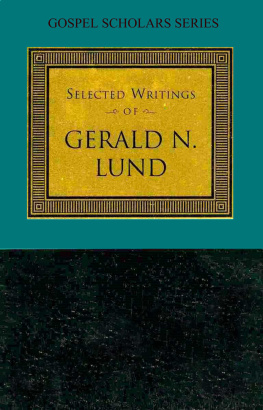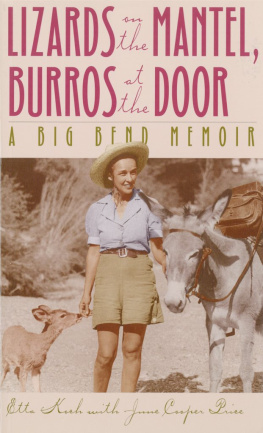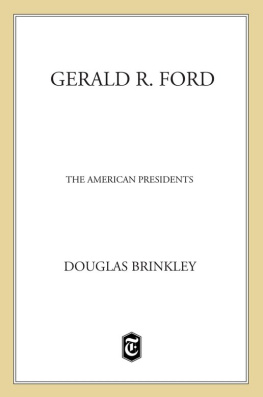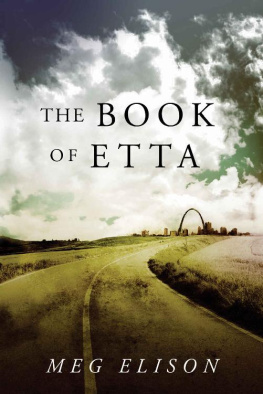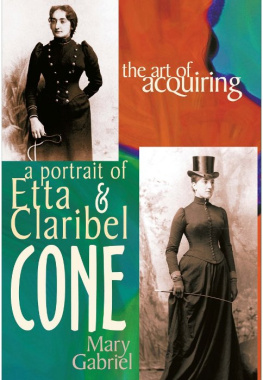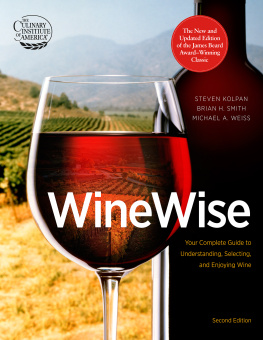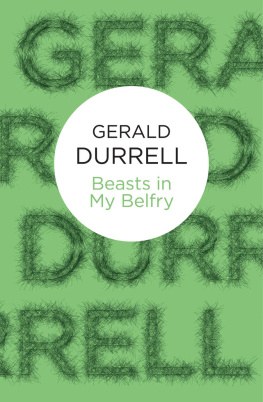Gerald Kolpan - Etta
Here you can read online Gerald Kolpan - Etta full text of the book (entire story) in english for free. Download pdf and epub, get meaning, cover and reviews about this ebook. year: 2009, publisher: Ballantine Books, genre: Art. Description of the work, (preface) as well as reviews are available. Best literature library LitArk.com created for fans of good reading and offers a wide selection of genres:
Romance novel
Science fiction
Adventure
Detective
Science
History
Home and family
Prose
Art
Politics
Computer
Non-fiction
Religion
Business
Children
Humor
Choose a favorite category and find really read worthwhile books. Enjoy immersion in the world of imagination, feel the emotions of the characters or learn something new for yourself, make an fascinating discovery.

- Book:Etta
- Author:
- Publisher:Ballantine Books
- Genre:
- Year:2009
- Rating:4 / 5
- Favourites:Add to favourites
- Your mark:
- 80
- 1
- 2
- 3
- 4
- 5
Etta: summary, description and annotation
We offer to read an annotation, description, summary or preface (depends on what the author of the book "Etta" wrote himself). If you haven't found the necessary information about the book — write in the comments, we will try to find it.
Etta — read online for free the complete book (whole text) full work
Below is the text of the book, divided by pages. System saving the place of the last page read, allows you to conveniently read the book "Etta" online for free, without having to search again every time where you left off. Put a bookmark, and you can go to the page where you finished reading at any time.
Font size:
Interval:
Bookmark:

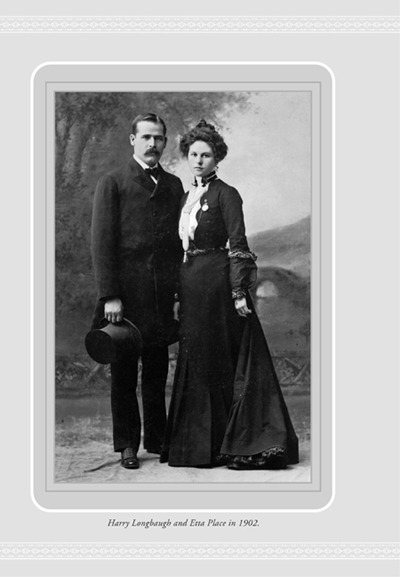

For J.S.W.
NEW YORK HERALD TRIBUNE
December 9, 1960
LORINDA JAMESON CARR, 80: PHILANTHROPIST,
HORSEWOMAN, SURE SHOT
MANHATTAN Mrs. Lorinda Jameson Carr, wife of the late Ralph Worthington Carr, died at her Fifth Avenue apartment late Wednesday morning.
The formidable Mrs. Carr was known as much for her high spirits and her ability to command a horse and fire a rifle as for her numerous charitable works in the cause of the urban poor.
Mrs. Carr was seen often at the country's most prestigious equestrian events. For over 40 years, she was an officer of the famed Devon Horse Show held outside of Philadelphia, the city she always described as her home town.
There was no one like Mother, said her daughter, the noted poetess Mrs. Etta Chase Harlan of West Hampton. When she wasn't down on the Lower East Side or in Harlem trying to help someone, she was on some horse farm in Virginia breaking a stallion everyone else was afraid to even look at. That is, until the stallion looked at Mother.
She married Mr. Carr, then one of the city's most eligible young men, in a civil ceremony in 1912. It scandalized all the bluebloods, their not having a proper wedding, Mrs. Harlan recalled. For a time, Father was disowned by my grandparents. Mother didn't care. She said she would have rather spent Father's money on food for a starving child than a Paris gown. From 1928 on, Mr. Carr was chairman of his family's firm, the venerable Carr Burton Brokerage. A pilot, independent socialist, and adventurer, Mr. Carr was also a member of President Franklin D. Roosevelt's Brain Trust. He died during World War II while serving as the president's liaison to the United States Special Services. He was aboard the plane carrying bandleader Glenn Miller and members of his orchestra when the aircraft disappeared over the English Channel on December 15, 1942. Mrs. Carr never remarried.
In the years prior to World War I, Mrs. Carr was a celebrated beauty much sought after by many beaux in New York society. She was a leading light of the Settlement movement and an early and vocal proponent of female suffrage. An orphan living on inherited wealth, she led an independent life, flouting the conventions of her day and often appearing in public alone and unescorted. The famous salon at her Manhattan apartment, and later her summer home on Lake Waramaug in Connecticut, welcomed influential figures from Albert Einstein to Max Ernst.
Although her politics had moderated considerably by the nineteen fifties, in that decade Mrs. Carr once again rode to the rescue of those accused of un-American activities. She offered financial and moral support to writers, actors, and even some State Department officials affected by the blacklist. Still stylish and beautiful well into her 70s, she was linked to many famous and prominent men, and her rumored affair with blacklisted radio personality John Henry Faulk, many years her junior, kept gossip columnists busy in 1952.
A close friend and advisor to former First Lady Eleanor Roosevelt, Mrs. Carr served as a delegate to the 1932 Democratic National Convention, which nominated Mr. Roosevelt for president.
In a statement, Mrs. Roosevelt said, Both I and my family are deeply saddened by the loss of this unique and talented woman. By her independence, her indomitable spirit, and her charitable works, she has set an example for all women of goodwill. I will greatly miss my longtime companion and friend.
In addition to her public philanthropies, Mrs. Carr was also noted for her tremendous skill with both rifle and shotgun, abilities she claimed to have acquired from her father. From 1915 through 1935 she participated in the ladies' division of the American Winchester Competition. Winning first place 17 times, she never ranked lower than third. She would get very upset when we would call her Little Sure Shot, Mrs. Harlan remembered. She always said that title belonged only to Annie Oakley.
Little is known of Mrs. Carr's early life. She claimed to have been born in Philadelphia in 1880, the daughter of prominent socialite G. David Jameson. After Mr. Jameson's untimely death in 1898, Mrs. Carr was sent to live with relatives in Colorado.
Mother never talked about that time, said her son, W Harold G. Sperling Carr, president and chairman of United States Trust Company. We always believed it was too painful for her to mention. I think interrogating her about it all would have been, at the least, impolite. And while she was rather secretive about her writings, Mother was quite the autobiographer, and now that she's gone, my sister will be reading some of her diaries while I pore over a pile of scrapbooks. So perhaps a bit of light will be shed on that subject.
At time of publication funeral arrangements for Mrs. Carr are incomplete.

 mong all the other things her father liked to call her, he could now add thief.
mong all the other things her father liked to call her, he could now add thief.
He had always had pet names for her. He would refer to her as lamb and angel and picky, which he explained was short for pick of the litter. When he was the worse for drink, he had other names for her. If the spirits had made him happy, he called her pharo, after his favorite game of cards; lucky if he was winning. If the whiskey had turned him maudlin, the tears running down his cheeks, he would sometimes confuse the girl with her mother. Anna, he would cry, Anna, you've come back, though the fantasized return would bring no comfort to him. When demon alcohol turned him angry he would accuse her of being disloyal or spoiled. He would even say she was never wanted.
And always in the sober light of morning, he would beg her forgiveness; always she would grant it.
Over the years, she had learned to dismiss both the drink and the words. He was her father, and she preferred to think of him only at his best: the father who had taught her what he knew, the father who, she became convinced, had loved her as best he could.
He had bought Bellerophon in Virginia only the year before from a genteel man named Mr. R. C. Campbell. A month prior to the purchase, the breeder had stood helplessly by as the stallion bit and kicked two of his stablemates to death. Campbell had sold the horse to Father at a bargain price, stating that he was doing the Lord's work by lowering the tariff on a devil. Less than five minutes after the deal was struck, Father was astride the giant animal, digging his spurs into the fat sides and galloping across the green meadow, his crop driving the demon toward ever-higher speeds. Whooping and hollering, he had disappeared from sight for over an hour, and when he finally returned the horse was covered in foam and he himself drenched in sweat. As the big man dismounted, the stallion reared and attempted to trample him. Father reached up and grabbed the bridle of the beast, pulling hard and laughing. With the help of half a dozen grooms, he managed to return the stallion to his paddock, complimenting the astonished Campbell on the quality of his stock. This devil will do fine for me, he told the breeder. Either he will kill me or I will kill him. In either situation, the world will be minus one more ne'er-do-well.
Font size:
Interval:
Bookmark:
Similar books «Etta»
Look at similar books to Etta. We have selected literature similar in name and meaning in the hope of providing readers with more options to find new, interesting, not yet read works.
Discussion, reviews of the book Etta and just readers' own opinions. Leave your comments, write what you think about the work, its meaning or the main characters. Specify what exactly you liked and what you didn't like, and why you think so.


